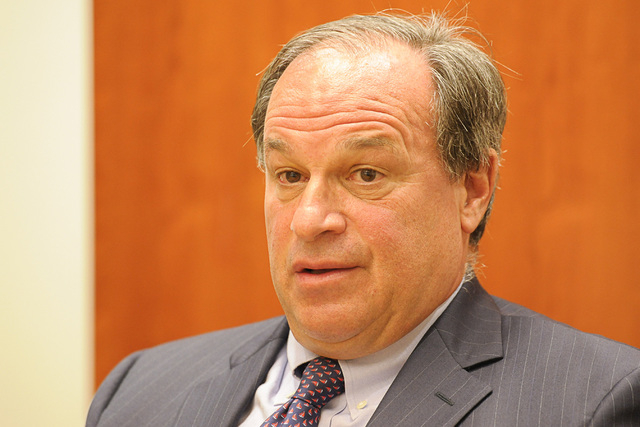Policy allows military exemption on Nevada’s school choice accounts

CARSON CITY — An existing law easing the school transition for children of military families outlines policy to allow a military exemption from the 100-day eligibility rule for Nevada’s new school choice accounts, administration officials said.
On Tuesday, the day before Veterans Day, State Treasurer Dan Schwartz thanked Gov. Brian Sandoval for endorsing a regulation exempting military families from the rule.
Sandoval’s office said the governor is a long proponent of the concept.
“The governor has publicly stated that he supports the broad policy allowing military families to receive the immediate benefits of the ESA legislation,” Sandoval spokeswoman Mari St. Martin said in an email.
Under the law passed by the 2015 Legislature, Schwartz’s office is tasked with drafting regulations to implement Education Savings Accounts, or ESAs.
“My office continues to march towards full implementation in January and make the first payments to account holders in February,” Schwartz said. More than 3,500 applications have been received during an early enrollment period that closes Nov. 30.
Widely considered the most expansive school choice program in the country, ESAs will offer parents about $5,000 in per-pupil state funding if they pull their student out of public school and pay for private school tuition or homeschooling, tutoring and other education services. To qualify, the law states current school-age children must be enrolled in public school for 100 consecutive days.
The prior-enrollment rule has drawn criticism from parents who already send their children to private school.
St. Martin pointed to the Interstate Compact on Educational Opportunity for Military Children, adopted by the 2009 Legislature and implemented in 2011, as providing support for the military family exemption.
The compact has now been adopted by all 50 states, according to the Military Child Education Coalition. It streamlines the process for student enrollment, placement, attendance, extracurricular activities and graduation — issues often complicated by a military family’s frequent moves and deployments.
It applies to children of full-time, active-duty service members, including members of the National Guard and military reserve.
The compact does not apply to inactive or retired service members, though there are limited exceptions for children of service members who receive a medical discharge or die while on active duty.
Contact Sandra Chereb at schereb@reviewjournal.com or 775-687-3901. Find her on Twitter: @SandraChereb.